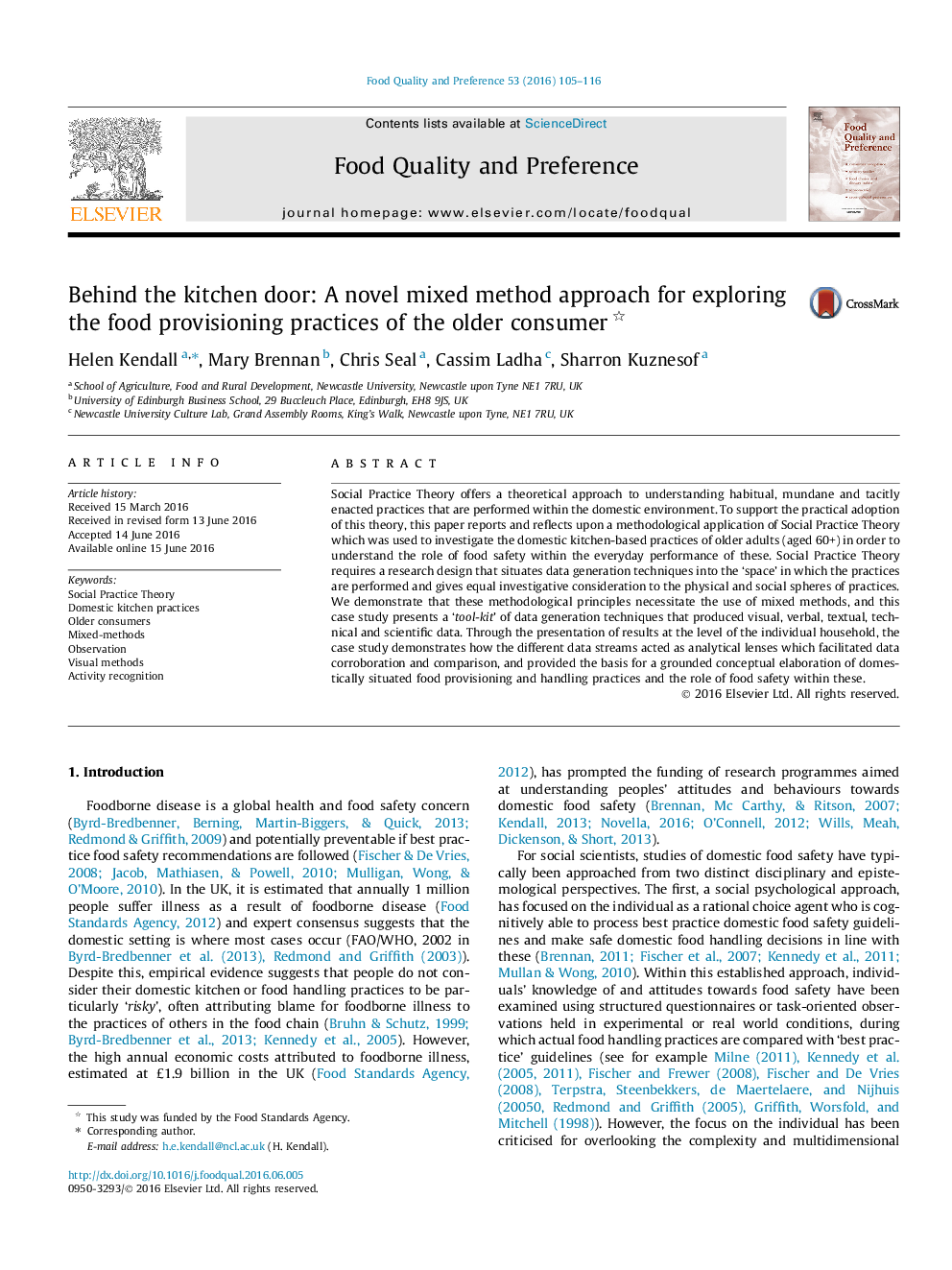| Article ID | Journal | Published Year | Pages | File Type |
|---|---|---|---|---|
| 4316889 | Food Quality and Preference | 2016 | 12 Pages |
•Social Practice Theory (SPT) is used to explore the domestic kitchen-based practices of the 60+.•Arguing that practice based studies must be situated in the ‘space’ where practices are performed.•An ethnographic mix of methods are proposed that appreciate the complexities of kitchen life.•The methods build layers of understanding of domestic kitchen life.•From which, the role of food safety within households can be explored.
Social Practice Theory offers a theoretical approach to understanding habitual, mundane and tacitly enacted practices that are performed within the domestic environment. To support the practical adoption of this theory, this paper reports and reflects upon a methodological application of Social Practice Theory which was used to investigate the domestic kitchen-based practices of older adults (aged 60+) in order to understand the role of food safety within the everyday performance of these. Social Practice Theory requires a research design that situates data generation techniques into the ‘space’ in which the practices are performed and gives equal investigative consideration to the physical and social spheres of practices. We demonstrate that these methodological principles necessitate the use of mixed methods, and this case study presents a ‘tool-kit’ of data generation techniques that produced visual, verbal, textual, technical and scientific data. Through the presentation of results at the level of the individual household, the case study demonstrates how the different data streams acted as analytical lenses which facilitated data corroboration and comparison, and provided the basis for a grounded conceptual elaboration of domestically situated food provisioning and handling practices and the role of food safety within these.
